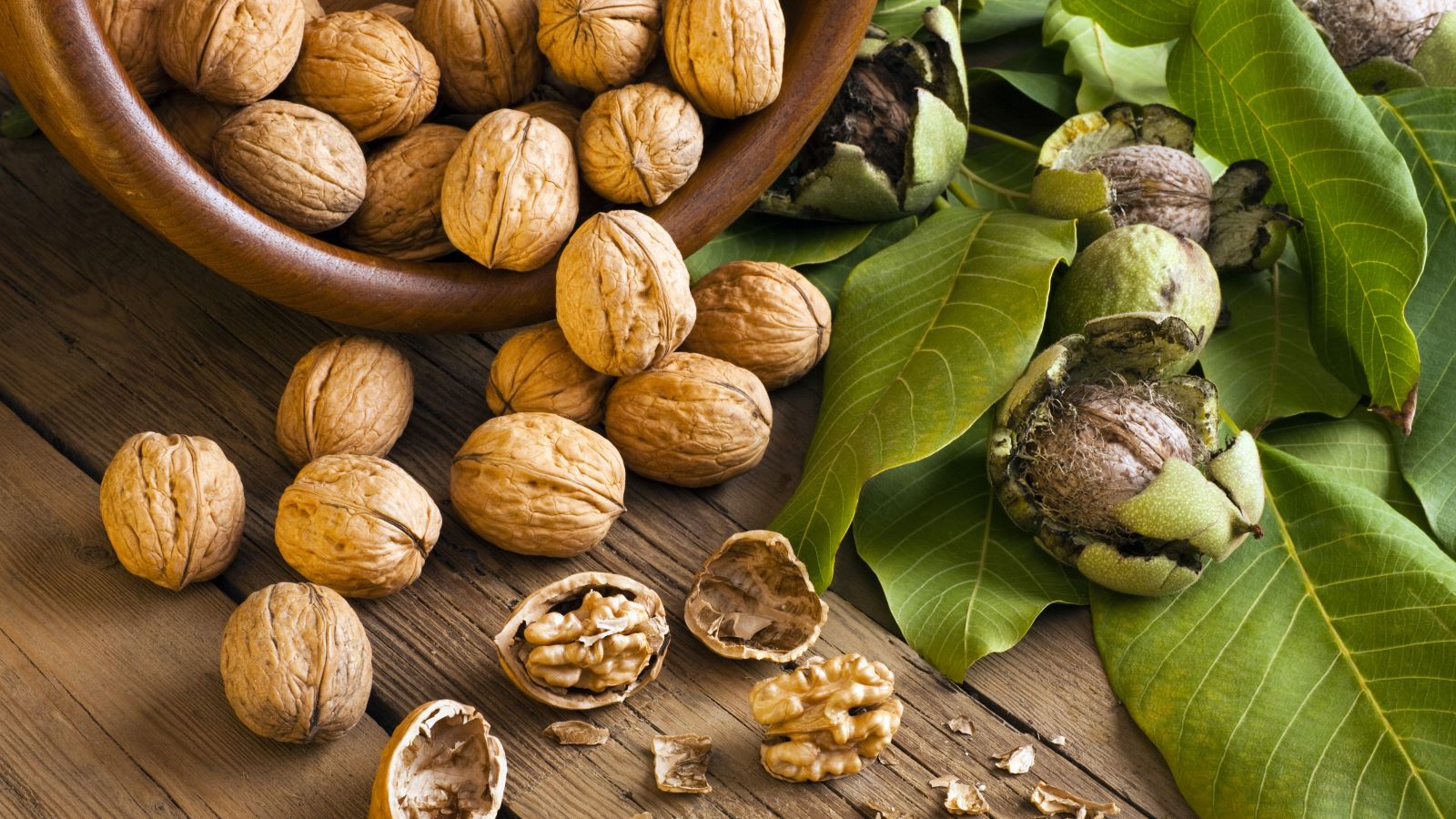<< Back
Nutrition Smack Down: Healthiest Nuts

January 22, 2024
They’re crunchy. They’re convenient. And most importantly, they’re delicious. From dieters to snackers to dessert enthusiasts, nuts are a staple for everyone.
But do they all offer the same nutritional value?
It’s time to find out, once and for all, which type of nuts are healthiest. Here’s what a dietitian has to say.
1. Almonds.
Versatile and delicious, almonds offer plenty of health benefits.
“Fiber, protein, calcium, vitamin E, almonds are packed with nutrients,” says Jamie Allers, MS, a registered dietitian with Hartford HealthCare’s Digestive Health Institute. “They promote bone and muscle health, and are a great source of antioxidants.”
Not sure if you should take the skin off before eating them?
“That’s totally up to you,” says Allers. “The skin does contain some fiber and antioxidants, but the nuts themselves already contain plenty. If you prefer them without skin, it won’t make much of a difference.”
Allers suggests adding more almonds to your diet by including them in oatmeal or yogurt. Or, if that’s not your style, try swapping out your regular flour for almond flour – bonus points if you try almond flour pancakes.
> Related: This Snack May Curb Your Appetite and Help With Weight Loss
2. Walnuts.
Next up – walnuts.
“Walnuts have the highest concentration of polyunsaturated fats, which are actually beneficial for heart health,” says Allers. “And like most nuts, they’re high in antioxidants.”
Allers recommends adding walnuts to salads or desserts to make them more filling.
“Especially when it comes to desserts, nuts can help increase the nutritional value. That doesn’t necessarily mean you can eat more dessert, but it does mean you’ll get more health benefits from them.”
3. Pecans.
Like walnuts, these are great for reducing inflammation and improving your heart health.
“But it’s important to remember that nuts do contain calories,” says Allers. “Keep an eye on your portion sizes – a one ounce portion will have about 150-200 calories, which should be a satisfying snack.”
She suggests roasting pecans, especially with seasonings like cinnamon and chili powder or dried rosemary and garlic. Toss them in olive oil and roast for 15-30 minutes, until toasted and aromatic.
4. Pistachios.
With more potassium than any other nut, these are great for your heart health and immune system.
But before you run out and buy a pint of pistachio ice cream, Allers has this warning:
“In any processed foods, the pistachio is likely just a flavoring. You may not be getting a substantial amount of real pistachio, if any.”
To find out, check the ingredient list and look out for pistachio extract or flavor.
“If you’re looking for a great way to add pistachios to your diet, try using them in a pesto recipe instead of pine nuts,” Allers suggests. “Or grind them up and mix with garlic, lemon, herbs and olive oil as a fun topper for fish or chicken.”
5. Cashews.
A staple of any good trail mix, cashews are loaded with nutrients.
“These are a great source of zinc and iron, which can boost immune health and prevent anemia,” says Allers.
But like any nut, be wary of additives.
“Many nuts can be found roasted and flavored, which may add oils, salts, and sugars. When in doubt, raw nuts will have the least additives,” she notes.
Allers suggests blending cashews into savory dips and dressings as a plant-based cream alternative.
6. Seeds.
Although not technically a nut, seeds offer many of the same benefits.
“If you’re allergic to nuts, you may still be able to eat seeds (although it depends on your specific allergy),” Allers says. “This could be a great way to add healthy fats, fiber, protein and antioxidants to your diet.”
Not sure about your particular allergy? Be sure to check with a doctor before incorporating seeds in your next meal.